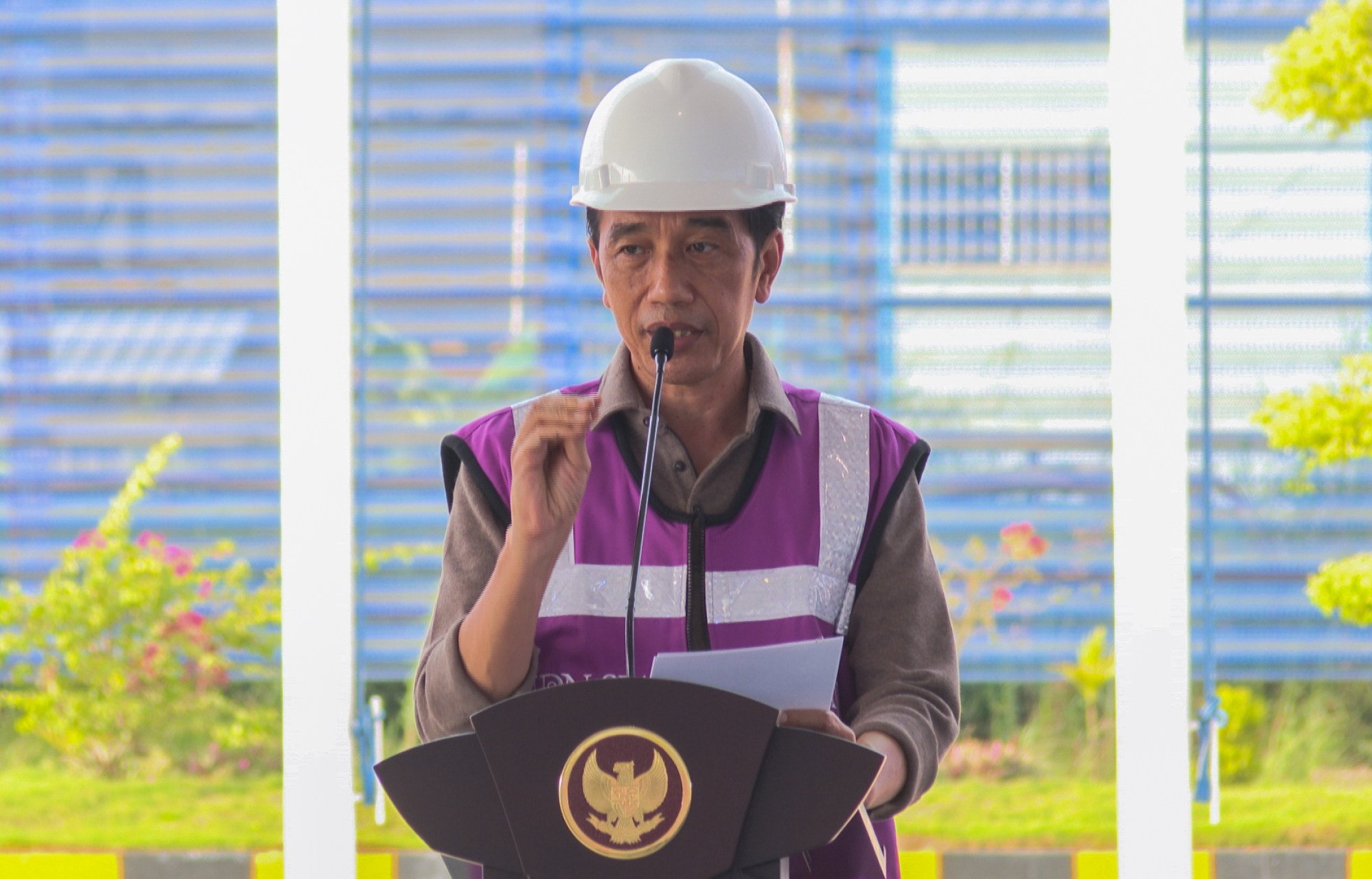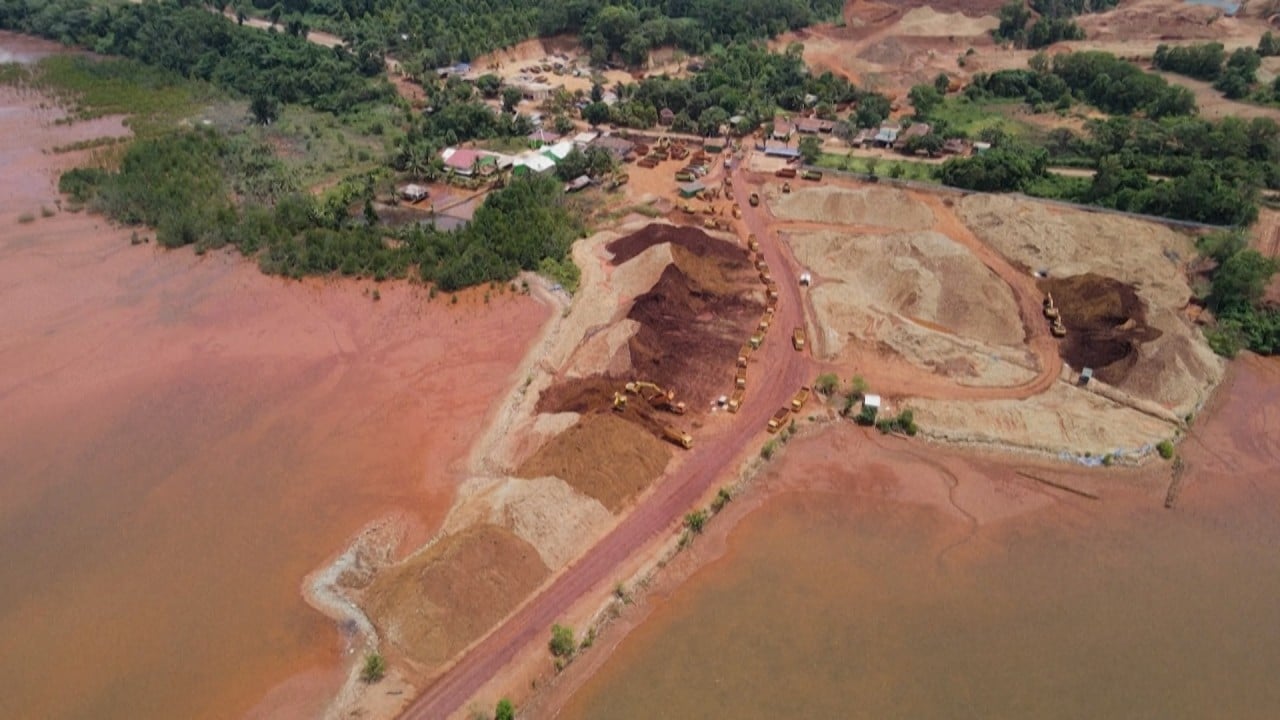
As Indonesia stands by bauxite ore ban, can it replicate nickel success?
- The ban is part of a ‘downstreaming policy’ to boost revenue from raw materials by requiring miners and producers to build onshore refining facilities
- China, Indonesia’s primary importer of bauxite, could file a complaint about the ban at the WTO, but analysts say such a move would be drastic
But he remained steadfast in Jakarta’s plan to move ahead with the ban, which came into effect this month.
“If anyone sues us, we’ll face it. Please, let’s not act like a small country. Indonesia is a big country. A big country shouldn’t be gutless when getting sued, don’t be ridiculous,” Widodo said, according to CNBC Indonesia.

In 2022, Indonesia produced some 21 million tonnes of bauxite, according to data from the US Geological Survey, making it the world’s fifth-largest producer. Almost 85 per cent was exported overseas.
The ban comes as Indonesia pursues a “downstreaming policy” to generate more revenue from raw materials by requiring miners and producers to build refining facilities onshore.
Analysts suggest Indonesia’s success with banning exports of highly sought-after nickel ore in 2020 has encouraged the country to further limit the trade of other raw materials, including bauxite, to entice foreign investors to build smelters in the country.
Chinese workers ‘suffering’ in Indonesia’s nickel factories, complaint says
Widodo previously said that aside from bauxite ore, he also wanted to curb exports of copper, tin and gold, among others.
Under a bauxite export ban, Widodo last December predicted that state revenue from exports would almost triple from 21 trillion rupiah (US$1.4 billion) to around 62 trillion rupiah.
While Jakarta aims to push forward with this value-added strategy for its domestic industry, the move – considered by many as protectionist – could also create tensions over free trade.
WTO complaint?
Approaching the WTO might prove too drastic a move from China, analysts said, considering that Indonesia was never its main source of bauxite ore.
“There might be a [possibility of] heightened tension between China and Indonesia, but I expect the probability to be very small as China has other prominent sources of imported bauxite,” he added.
China had also been fostering a deeper economic relationship with Indonesia in recent years, said Bill Sullivan, a senior foreign counsel at the Jakarta-based law firm Christian Teo & Partners, who specialises in mining projects.
“China looks to Indonesia as a source of various raw materials and many Chinese companies have made large investments in Indonesia,” he said.
“China should think very carefully about whether it wants to potentially create any problems for that deep economic relationship by filing a WTO complaint.”
After Indonesia’s ban on nickel exports, the EU filed a complaint with the WTO that found the Southeast Asian nation had violated its provisions and breached global trade rules. Indonesia has since filed an appeal, citing differences with the ruling.
But observers say their main concern lies in Indonesia’s capacity to process all its extra bauxite ore now that the export market has been cut off.

Airlangga Hartarto, coordinating minister for economic affairs, said there were four bauxite refining facilities in Indonesia with a total output capacity of 4.3 million tonnes, and at least eight more smelters are being built.
The existing bauxite smelters in Indonesia do not have the capacity to absorb all the bauxite that is being produced, experts say, and it will take a long time until the country can match its mining output.
Bauxite miners were already reducing production to match the limited domestic processing-capacity, Zuhdi said.
Banking on Chinese investment?
The solution might lie with Chinese investors.
China – whose aluminium sector has been bumping up against a domestic-capacity ceiling imposed by the government – is eyeing the construction of smelters elsewhere.
Having already tapped into the country’s nickel resources, Indonesia might be an ideal location, said Wang Yanchen, an analyst at Shanghai Metals Market.
Why China’s ending of coal ban is unlikely to boost Australian exports
According to China’s leading metals-industry association, Chinese companies are planning for a total annual capacity of 10 million tonnes in Southeast Asia, primarily in Indonesia.
Chinese companies have also invested in alumina refineries in Indonesia that process bauxite into the intermediate product, while the first Chinese-owned smelter outside China began operations in Indonesia’s Sulawesi in May.
A Chinese-backed aluminium plant is also operational in Indonesia with backers including Tsingshan Group, the same firm that spearheaded China’s rush to spend billions of dollars to develop Indonesia’s nickel industry.
In the third quarter of 2022, the majority of 1,150 new Chinese investment projects were in nickel-smelting and downstream-processing industries, worth US$1.56 billion.

Bauxite vs nickel
While Indonesia’s downstream strategy worked well for nickel, analysts are cautious about whether the same success will translate to bauxite.
“The supposed success that has been achieved with nickel has been a major catalyst for and encouragement to the government taking a tough line with bauxite exports,” Sullivan said.
“The government is, arguably, drawing unrealistically broad parallels between the experience with nickel and what it hopes will be the experience with bauxite.”
Indonesia’s bauxite ban risks WTO complaint but won’t rock global supply
Building bauxite smelters is vastly more expensive than building nickel smelters, experts say, so expanding the operations at a larger scale will pose a problem for the government.
If Indonesia plans to become a major hub for the aluminium industry, it will also have to grapple with its reliance on coal-fired power plants which contrast with global moves, including those of China, towards more renewable sources of energy.
“The big problem for the industry is carbon emissions if it wants to scale and develop its aluminium industry, especially because of the decarbonisation trend globally,” Wang said.
Additional reporting by Bloomberg


